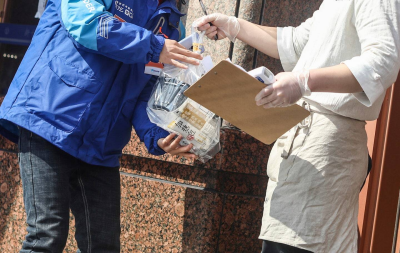The Washington Post-A green nudge cut single-use plastic waste in China study suggests
September 17, 2023 2 min 376 words
这篇报道揭示了一个非常有前景的环保措施,采用所谓的“绿色助推”,通过在线食品外卖平台的小改变,显著减少了一次性塑料餐具的使用。这项研究非常有意义,因为一次性塑料制品对于现代社会的污染和气候变化构成了严重威胁。 中国是世界上一次性刀叉筷的最大生产和使用国,每天使用了超过5000万套一次性餐具,而这些餐具大部分并没有得到充分的回收或处理。然而,通过在一个知名的中国在线食品外卖服务中引入“绿色助推”,即询问消费者是否需要餐具,而不是默认包含在订单中,取得了显著的效果。 最令人鼓舞的是,这项改变并没有影响平台的业务绩效或订单数量。事实上,无餐具订单的数量大幅增加,增长了648%。不同群体对这个应用的餐具选择有不同的反应,这也是一个有趣的发现。这一措施还允许用户通过积分兑换在中国沙漠种植树木,进一步激励了环保行为。 研究者估计,在27个月的研究期间,这个“绿色助推”减少了2.25亿套餐具的使用,防止了4506.52吨的废物产生,相当于保存了56333棵树木。如果在全国范围内推广这种改变,将产生巨大的环保效益。 这篇报道强调了私营部门和平台公司在推动顾客采取环保行为方面的重要作用,他们的企业社会责任与生态友好倡议的更好对齐,将对我们的星球产生深远的影响。这是一个鼓舞人心的案例,显示了通过小而聪明的创新,我们可以在减少一次性塑料浪费方面取得巨大的胜利。希望更多企业效仿,共同努力保护我们的环境。
2023-09-13T19:51:12.703Z
Pollution and climate change fueled by disposable plastics is a scourge of modern times — but recent research suggests a few simple changes can push people to use fewer single-use plastic utensils.
Writing in the journal Science, Chinese researchers report on how incorporating “green nudges” into a popular Chinese online food delivery service dramatically cut single-use cutlery orders. The nudges, if applied at a larger scale, could cut both plastic waste and deforestation, the scientists say.
China is the world’s largest producer and user of single-use cutlery, with Chinese customers of food delivery services using more than 50 million sets of single-use cutlery each day that were not “adequately recycled or disposed of,” the researchers write.
In response to new regulations designed to quell disposable cutlery waste, the Chinese online food platform Ele.me — similar to UberEats or DoorDash in the United States — began asking consumers whether they wanted cutlery with their orders, instead of automatically including it.
The researchers worked with Ele.me’s parent company, Alibaba, to evaluate the effectiveness of this initiative, which defaulted to zero cutlery and also allowed users to earn points that could be collected and redeemed for planting a tree in the Chinese desert.
They found that no-cutlery orders increased “significantly” — 648 percent — after the app change. The “nudges” didn’t harm business performance or the total number of orders.
Different groups responded differently to the app’s cutlery choices. Women, people over age 24 and infrequent app users were more likely to respond to the nudges, while people with more expensive cellphones or who bought more expensive meals responded more often.
Over 27 months of study, the researchers write, the nudges cut the number of cutlery sets delivered by 225.33 million, preventing 4,506.52 metric tons of waste and saving the equivalent of 56,333 trees.
If applied nationwide, the researchers write, such changes could make a massive difference.
“We think that the private sector and platform companies can play a powerful role in promoting prosocial behaviors among their customers,” the researchers write. “Better alignment between their corporate social responsibilities and ecofriendly initiatives could bring about far-reaching impacts to our planet.”

